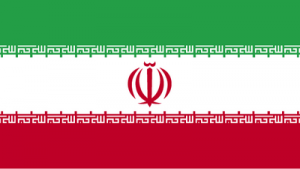Quick takesSunni states cut Iran ties; Syrian regime uses sarin gas; ISIS’s Libyan oil terminal; European borders closing
Bahrain, Kuwait, and Sudan cut their ties with Iran, while the UAE downgraded its relations; a UN fact-finding mission has found evidence for the use sarin gas in Syria; ISIS launched a coordinated gun and suicide car bomb attack on the Sidra oil port on Libya’s Mediterranean coast.; Denmark and Sweden reintroduced border controls in an effort to stem the wave of refugees trying to enter the two countries.

Iran finds itself growing more isolated // Source: commons.wikimedia.org
Saudi Arabia-Iran split: More Sunni state cut ties with Iran
Saudi Arabia’s closest Sunni allies have joined the Saudis in cutting their diplomatic relations with Iran. The Saudis severed diplomatic ties with the Shi’a state after Iranian “protesters” were instructed by the Iranian government to ransack to Saudi embassy in Tehran. The Iranians retaliated against the execution by Saudi Arabia on Thursday of a leading Saudi Shi’a cleric. Bahrain, Kuwait, and Sudan cut their ties with Iran, while the UAE downgraded its relations. More Sunni states are likely to follow the Saudi lead and cut their own ties with Iran, deepening the Sunni-Shi’a tensions in the region.
Syria: Assad regime continues to use sarin gas against Sunni civilians
A fact-finding mission by the Vienna-based Organization for the Prohibition of Chemical Weapons (OPCW), the UN chemical weapons watchdog, has found evidence for the use sarin gas in Syria, according to a report released Monday. The fact-finding mission said it was investigating eleven incidents of the use of toxic chemical. Previous investigative missions by the OPCW in Syria have pointed to the use of chlorine and mustard gas Chlorine and mustard gas could have been used by ISIS – and, in Iraq, evidence emerged earlier this years of ISIS use of mustard gas against Kurdish Peshmerga forces – but only the Assad regime has a small stock of sarin. After the August 2013 sarin attack by the Syrian army on a Sunni neighborhood outside Damascus, an attack in which 1,400 civilians were killed and hundreds injured, Assad’s government agreed to turn over its chemical arsenal. There were suspicions all along that Assad would cheat, and keep a small amount of sarin as a weapon of last resort. OPWC says that 99.6 percent of all declared chemical weapons in Syria – declared, that is, by the Syrian regime — had been destroyed. This leaves about 200-300kg of declared sarin unaccounted for – and an untold amount of sarin which the regime had not declared.
Libya: ISIS threatens to seize major oil port
British troops will soon be deployed to Libya to help the fragile unity government tackle the growing sway of ISIS in the country, but their task has grown more complicated Monday after the Islamist group and its affiliated militias launched an attack aimed to seize the country’s largest oil depot. ISIS launched a coordinated gun and suicide car bomb attack on the Sidra oil port on Libya’s Mediterranean coast. A rocket fired into a 420,000 barrel oil tank also sparked a huge blaze which continues to burn. Sidra is located about 130 miles east along the coast from Sirte, Colonel Gaddafi’s home city. Sirte was also the birth place of pro-Islamist militias – some of them allied in Libyan Dawn, a coalition of Islamist armed groups which took over Tripoli in August 2014, declaring themselves the new rulers of Libya. The internationally recognized government escaped to the eastern city of Tobruk. Two weeks ago, the two rival camps agreed to a unity government, and the United Kingdom pledged to send a few hundred troops to bolster the new government’s security operations. Observers say that the prospect of ISIS seizing lucrative oil facilities will increase pressure on Britain and other Western powers to accelerate plans to send troops to help Libya’s fledgling government.
European borders: Sweden, Denmark impose border controls
The Schengen zone is “in danger,” Germany warned on Monday, as Denmark and Sweden reintroduced border controls in an effort to stem the wave of refugees trying to enter the two countries. Sweden yesterday imposed border checks on the famous Oresund crossing, the 5-mile bridge and tunnel link between Malmo and Copenhagen. The border checks were removed from the bridge in 1954. Denmark, fearing it would now be flooded with migrants who can no longer cross into Sweden, introduced spot checks on its southern border with Germany. The closures of the Swedish and Danish borders is considered a serious blow to the Schengen passport-free travel zone – especially as it comes from two of Schengen’s most ardent supporters. About 1.1 million migrants have arrived in Europe in 2015, and about 1.5 million forecast to try and reach Europe from the Middle East this year.
